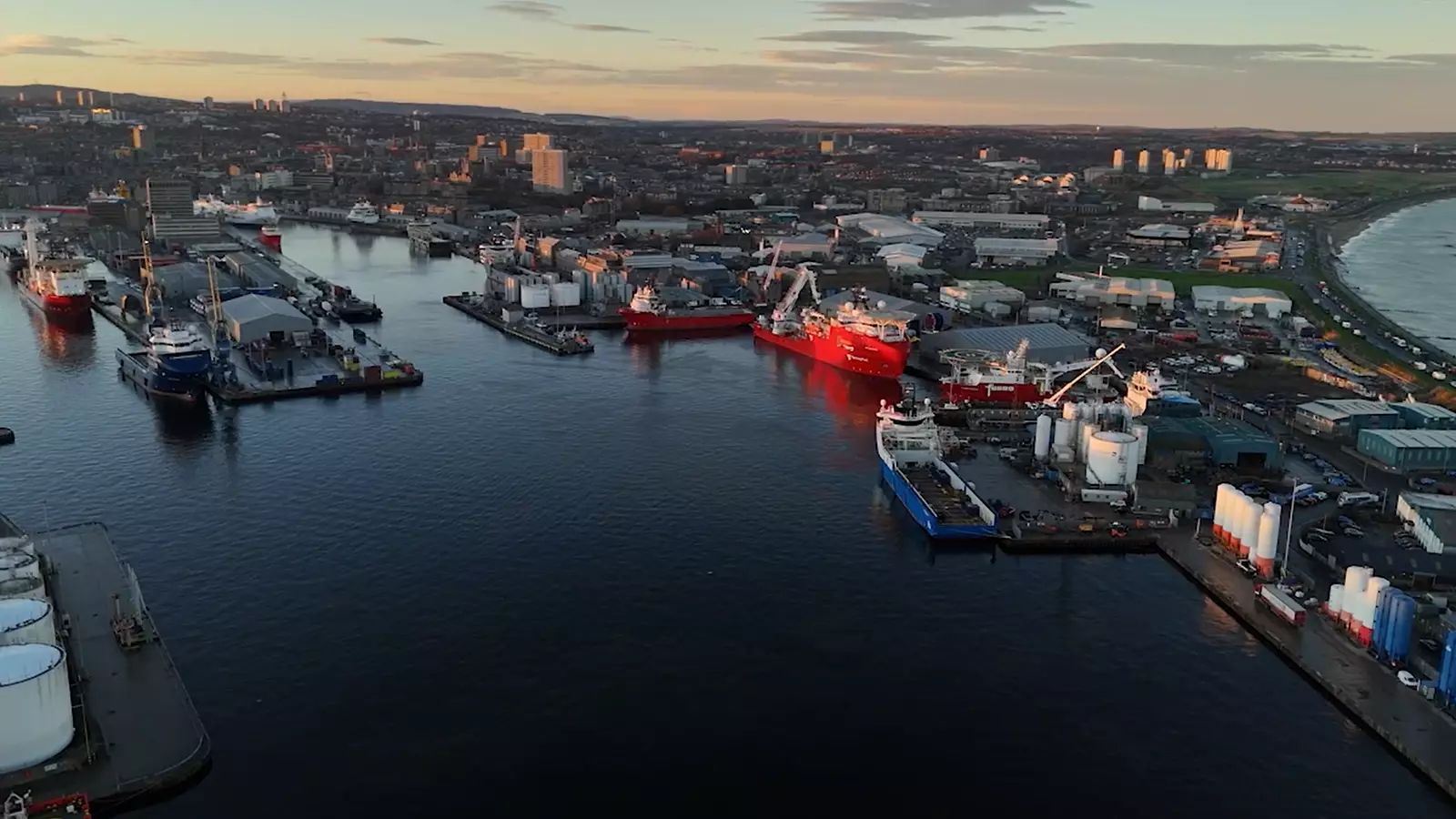The promise of a sustainable energy future in the UK has taken center stage, especially with the recent commitments from Labour’s leader Sir Keir Starmer. The establishment of GB Energy, poised to be a significant player in renewable energy, brings with it a goal of creating 1,000 jobs in Aberdeen. However, this ambitious vision also raises several concerns regarding its feasibility and the timeline for its implementation. As the urgency for energy transition increases, scrutiny of such green initiatives becomes imperative, particularly in terms of economic impact and community confidence.
At the heart of the Labour government’s proposal is a commitment that aims to cut energy bills for consumers by an estimated £300. This ambitious objective aligns with Labour’s broader mission of providing financial relief to families amid rising living costs. Juergen Maier, who leads the charge for GB Energy as its start-up chairman, hints at a formidable task ahead, labeling this initiative a “very long-term project.” His statements suggest not only incremental changes but an overarching strategy that may take decades to fully realize. This long timeline raises critical questions: To what extent can the Labour government maintain public interest and support as the years pass by?
The labor landscape in Aberdeen, where the groundwork for GB Energy will be laid, presents a complex scenario. With approximately 50,000 individuals employed in the traditional oil and gas sectors, the transition to renewable energy is met with a mix of hope and apprehension. Russell Borthwick, chief executive of the Aberdeen and Grampian Chamber of Commerce, underscores this sentiment of uncertainty. The need for “quick wins” in renewable projects is palpable, as stakeholders await tangible progress that can assure the local workforce that their future in the energy sector remains secure.
Local businesses and workers are understandably anxious, reflecting a sense of vulnerability in the face of a shifting economic landscape. A primary concern lies in the pace of job creation, which, according to Mr. Maier, could yield only 200 to 300 jobs in the near term. This contrasts sharply with the overarching promise of 1,000 jobs, leading to speculation regarding whether these commitments are aspirational or systematically attainable within a reasonable timeframe.
As the discussions surrounding GB Energy unfold, the potential for over-promising and under-delivering looms large. Union representatives, such as Derek Thomson from Unite, have voiced apprehension regarding the ability of the new energy initiative to genuinely affect the local workforce positively. The phrase “desolation of the Northeast” starkly encapsulates the potential consequences of inaction or failure to deliver job opportunities amid an ongoing crisis in the North Sea industry.
The uncertainty surrounding the creation of meaningful employment opportunities in Aberdeen poses a critical challenge to GB Energy’s credibility. The promises of green jobs must be anchored in actionable strategies and clear timelines; otherwise, they risk becoming mere rhetoric devoid of substance. The urgency for coherent and rapid action is underscored by Richard Hardy of Prospect, who calls for detailed plans and transparency in job creation. Without these elements, the risk of public disappointment escalates.
The stakes of GB Energy’s promise extend beyond local economic conditions; they intersect with broader political considerations. Failure to deliver on the commitments made can undermine public trust in not just the Labour party but the government’s capacity to manage a successful energy transition. This trust is crucial as the energy landscape continues to evolve, requiring buy-in from the public at large. As the initial fervor surrounding green initiatives begins to wane, maintaining momentum hinges on visible outcomes and measurable success.
Moreover, the concept of political risk plays a vital role in shaping the expectations around GB Energy. With supporters placing their faith in these new initiatives, any visible stagnation or failure to meet objectives runs the risk of igniting skepticism. The challenge lies in turning initial optimism into lasting confidence, which is a delicate endeavor requiring transparency, clarity, and accountability.
As GB Energy prepares to embark on its mission to reshape the energy landscape in the UK, the journey will undoubtedly be fraught with challenges and uncertainties. The ambitious goals set forth will require sustained effort, careful planning, and an unwavering commitment to the communities affected. If GB Energy is to realize its promise of creating 1,000 jobs and lowering energy bills, it must prioritize strong engagement with local stakeholders, clear communication regarding timelines, and a transparent approach to progress. Only through these measures can GB Energy transform the vision of a sustainable future into a tangible reality that benefits all.


Leave a Reply